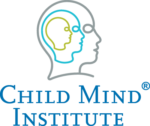Family Support Services
Advancement Project, #POLICEFREESCHOOLS, and Alliance for Educational Justice has created an action kit designed to equip providers with the necessary tools to protect students identified as immigrants. The goal of the action kit is to provide partner providers with information regarding current landscape and resources to support with community efforts.
Baker McKenzie in partnership with One North has created a multi-state resource guide to support unhoused youth. Included information guides youth in areas including knowing their rights particularly as it impacts their lives.
Together, The National Child Traumatic Stress Network (NCTSN) and The National Center for Posttraumatic Stress Disorder (PTSD) offer the Psychological First Aid (PFA) for Schools: Field Operations Guide as a resource for educators and educational professionals. This guide offers the PFA core actions which include contact and engagement; safety and comfort; stabilization; information gathering; practical assistance; connection with social supports; information on coping; and linkage with collaborative services.
This resource provided by the ACLU gives guidance to knowing your rights when questioned by law enforcement agencies and authorities. A copy of “My Rights Card” is available in this resource for use if needed. This resource is prepared in English.
This report was presented on behalf of the U.S. Surgeon General as an advisory to the mental health and well-being of parents. Based on data findings, there is expressed concern not only for the present mental well-being of parents but also for its direct impact on children. This advisory offers valuable insights to parents and providers alike.
The Annie E. Casey Foundation offers its latest installment to provide information on kinship diversion policies through this analysis report of state-by-state surveys of kinship care policies. Findings are based on 33 state respondents who have policies allowing kinship diversion. The Annie E. Casey Foundation defines kinship diversion as placement of a child with relatives or close family friends as an alternative to a child welfare agency taking custody and placing the child in formal foster care.
The Be SMART campaign was launched to raise awareness that secure gun storage—storing guns locked, unloaded, and separate from ammunition—can save children’s lives. Be SMART emphasizes that it’s an adult responsibility to keep kids from accessing guns and that every adult can play a role in keeping kids and communities safer. There are thousands of Be SMART volunteers in your communities and neighborhoods that are delivering the Be SMART message across the country in all 50 states. Be SMART resources include tips for parents and adults in talking to youth about gun violence and gun violence prevention.
The following resources offer tips for families including age-appropriate responses to common questions, a guide to self-care, and activities for young children experiencing social distancing.
Occupational therapists and trauma-informed teachers weigh in on how to create sensory tools and spaces with what you have at home.
Are you inside with the kids today? Someone’s sick? Raining outside? Something else keeping you inside? This booklet provides 10 ways you can talk, read, sing, and play your way through the day—just with things you might already have at home. Pick and choose the ideas that work best for your child’s age and interests. And follow your child’s lead on other ways they want to play!
Families, looking for a coaching plan for the next two weeks? Scroll through for week 1 and week 2 or download the guide below.
News of the coronavirus COVID-19 is everywhere, from the front page of all the papers to the playground at school. Many parents are wondering how to bring up the epidemic in a way that will be reassuring and not make kids more worried than they already may be. Here is some advice from the experts at the Child Mind Institute.







